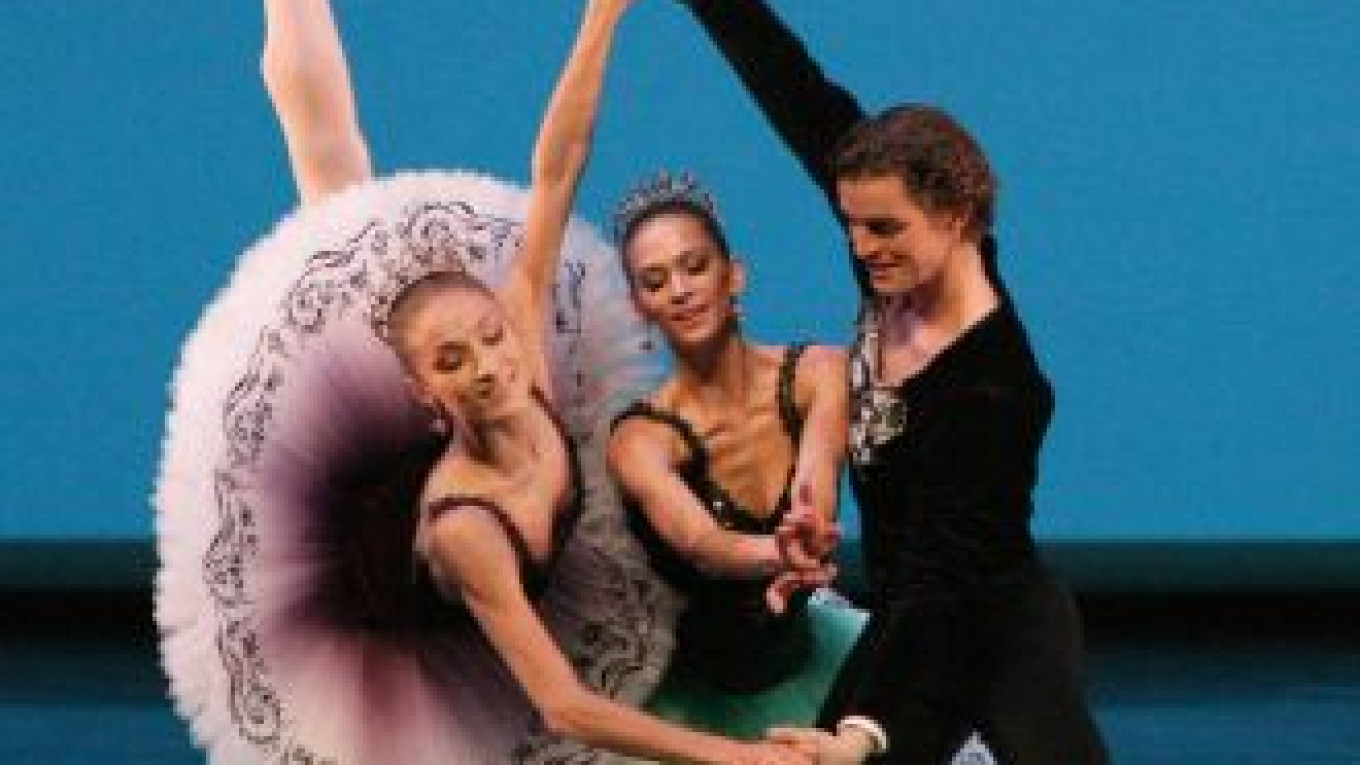In the last days of January, the Bolshoi Theater brought to its stage the Moscow premiere of “Reflections,” an evening of mostly new ballets featuring seven distinguished female graduates of the theater’s training school, the Moscow Choreographic Academy. Four of them — Yekaterina Krysanova, Natalya Osipova, Yekaterina Shipulina and Anastasia Stashkevich — were drawn from the Bolshoi’s own troupe. The other three have pursued careers abroad, Maria Kochetkova and Polina Semionova, as prima ballerinas, respectively, of San Francisco Ballet and of Staatsballett Berlin, and Olga Malinovskaya, as a soloist of Tallinn’s Estonia National Ballet.
“Reflections” is the latest in a series of special dance programs developed jointly by New York-based Ardani Artists Management and the Segerstrom Center for the Arts in Orange County, California, the site of its initial performance just a week before opening at the Bolshoi.
Preceding “Reflections” were “Kings of the Dance,” which visited Moscow in 2007 and 2009 with casts of leading male dancers from Russia, Western Europe and the United States, and “Beauty in Motion,” a program designed to display the many-sided talent of Mariinsky Theater prima ballerina Diana Vishneva, which was seen here in 2008.
“Reflections” differs from its predecessors in being co-produced by the Bolshoi, where it will become a part of the theater’s own repertoire, to be danced in the future both exclusively by the Bolshoi’s own troupe and with the addition of guests from other companies.
“Kings of the Dance” and “Beauty in Motion” were virtually unqualified successes. The same cannot be said of “Reflections,” although, on balance, its virtues tend to outweigh its defects.
The three-part program begins with Spanish choreographer Nacho Duato’s “Remansos,” set to piano music by his fellow countryman Enrique Granados and created in 1998 for American Ballet Theater. In its all-male version, it formed an outstanding segment of the second “Kings of the Dance.” Rearranged for a mixed male-female cast, it seemed to lose much of its impact. Osipova, Semionova and Shipulina all danced quite beautifully, but seemed not yet fully to have absorbed the unique and intricate Duato dance vocabulary. The three men who joined them, Bolshoi dancers Vyacheslav Lopatin, Denis Savin and Alexander Volchkov, gave little more than a pale imitation of their world-renowned counterparts in the “Kings” cast of the year before last.
The second part of “Reflections” is a divertissement, consisting of seven brief numbers by seven different choreographers, five of them brand-new creations. Two of the latter proved works of real distinction: Finn Jorma Elo’s “One Overture,” in which Kochetkova coped marvelously with the choreographer’s typically rapid-paced and at times almost mechanical style of dance; and Italian choreographer Mauro Bigonzetti’s “Serenata,” performed with enormous passion by Osipova and her fellow Bolshoi superstar Ivan Vasilyev, with most of the dancing, as such, left to Osipova, as Vasilyev engaged in a wide-ranging and virtuosic display of lifts and carries.
The second part of “Reflections” ended on a neoclassical note with George Balanchine’s seldom performed “Pas de Trois,” created in 1955 to music of Mikhail Glinka. As re-created by Marina Eglevsky, daughter of one-time Balanchine premier danseur Andre Eglevsky, and danced by Malinovskaya, Stashkevich and Lopatin, it came closer to duplicating the “real” Balanchine than have nearly any of the master’s other works staged at the Bolshoi over the past decade or so.
More brand-new choreography by Bizonetti formed the third and by far most successful part of “Reflections,” a 45-minute ballet called by the Italian title “Cinque” (Five), danced to music of Antonio Vivaldi and cast with Kochetkova, Krysanova, Osipova, Semionova and Shipulina.
“Cinque” starts with the five dancers, each attired in an atrocious-looking wig, seating themselves on a row of chairs and performing a hilarious slap-stick routine obviously inspired by Italian commedia dell’arte. Then, dressing themselves in leather tutus, the inspired creation of Russian designer Igor Chapurin, each of them performs an extended solo variation. The intention, according to a quote in the program from Bizonetti, is for each dancer “to tell her own personal story.” And each of them seemed to be doing precisely that. The suave elegance of Shipulina, the faultless virtuosity of Osipova, the bizarre humor, somewhat surprisingly, of Krysanova, the uncanny precision of Kochetkova and the drive of Semionova provided a series of portraits likely to remain etched in minds of all who saw them.
“Reflections” (Otrazheniya) next plays Feb. 20, 21, 22 and 23 at 7 p.m. at the New Stage of the Bolshoi Theater, located at 1 Teatralnaya Ploshchad. Metro Teatralnaya. Tel. 250-7317, www.bolshoi.ru
A Message from The Moscow Times:
Dear readers,
We are facing unprecedented challenges. Russia's Prosecutor General's Office has designated The Moscow Times as an "undesirable" organization, criminalizing our work and putting our staff at risk of prosecution. This follows our earlier unjust labeling as a "foreign agent."
These actions are direct attempts to silence independent journalism in Russia. The authorities claim our work "discredits the decisions of the Russian leadership." We see things differently: we strive to provide accurate, unbiased reporting on Russia.
We, the journalists of The Moscow Times, refuse to be silenced. But to continue our work, we need your help.
Your support, no matter how small, makes a world of difference. If you can, please support us monthly starting from just $2. It's quick to set up, and every contribution makes a significant impact.
By supporting The Moscow Times, you're defending open, independent journalism in the face of repression. Thank you for standing with us.
Remind me later.






